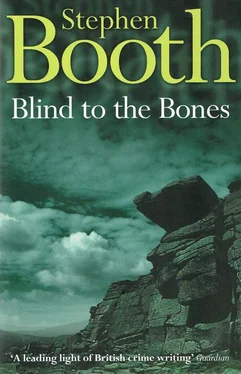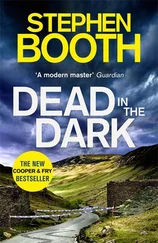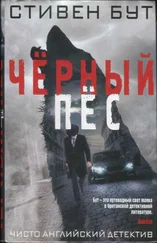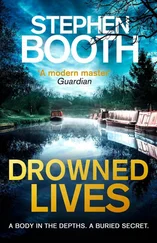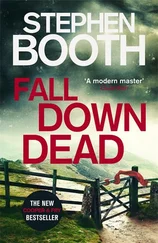‘Someone knocked him unconscious, then hit him again, breaking his arm?’
‘Perhaps. But remember that he struck his head when he fell.’
Fry looked up, dragging her eyes away from the protruding bone. ‘You mean he was already dead when his arm was broken?’
‘It wouldn’t have happened quite so quickly,’ said Mrs Van Doon. ‘But he was certainly dying.’
‘Neil had lived in Tintwistle for about nine months,’ said Philip Granger. ‘His house is right on the main road.’
‘Yes, we know. You went there with DC Cooper and some other officers yesterday,’ said DI Paul Hitchens patiently.
Granger nodded, but didn’t look at Ben Cooper, who was sitting next to the DI. Cooper gathered the impression that Philip Granger didn’t remember him. He’d already made a formal statement this afternoon about his brother, which had been pretty comprehensive. There were details in it that would be gone over again later, but not just now.
In the interview room at West Street, Granger looked as ill as he had the day before. Either he hadn’t shaved before he came out, or he had a bad case of five o’clock shadow. Cooper wanted to ask him if he was experiencing the survivor’s guilt that members of a victim’s family often suffered from — the irrational feeling that the wrong person had died. It should have been me, not him. And all those ‘if onlys’. Maybe it was even worse for an older brother.
‘Neil was forever complaining about the traffic jams in Tintwistle,’ said Granger. ‘They’ve been talking about a Longdendale bypass for years and years. He even went to some of the meetings of the campaign committee, but he didn’t like the other folk who were on it. He said they were pretentious gits with too much time on their hands.’
‘We’re continuing to examine your brother’s house, Mr Granger,’ said Hitchens. ‘As next of kin, you have the right to be present, if you wish.’
‘Next of kin,’ repeated Granger.
‘Do you understand what I’m saying, sir?’
‘It doesn’t matter. You’ve got Neil’s car, too, haven’t you? The Beetle.’
‘That’s right.’
‘Have you found anything yet?’
Hitchens perked up with sudden interest. ‘In the car? Why do you ask?’
‘I thought there might be some clues in it. I mean, Neil might have given someone a lift that night, mightn’t he? He had a habit of doing that. I wouldn’t pick anybody up myself, because you never know who they might be these days. But Neil didn’t always see sense like that.’
‘I understand.’
Granger looked at Cooper for the first time.
‘It was the vicar that phoned me, you know,’ he said. ‘Mr Alton.’
‘Yes, you mentioned it in your statement,’ said Cooper. ‘Mr Alton was expecting Neil to help him in the churchyard on Saturday morning.’
‘I went round to Neil’s house, but there was no sign of him.’
‘Yes, sir.’
‘But I didn’t really think there was anything wrong. I didn’t think...’
Granger stopped. He seemed to feel the need to go over again some of the things he’d said in his statement. But only some of the things — those that affected himself. Perhaps they were the only facts he was sure of, and the rest of it he couldn’t believe.
‘The next-door neighbours couldn’t give a toss,’ he said.
‘Did your brother not get on with them?’
‘I don’t think they liked the look of him any more than me. But they hated me coming to his house on my bike.’
‘You don’t live too far away yourself, do you?’
‘I share a place with some mates in Old Glossop.’
Hitchens glanced at Cooper.
‘Five or six miles, something like that? So you’re only a few minutes away.’
‘It depends on the traffic.’
‘It must have been quite different for both of you, when you moved away from Withens,’ said Cooper. ‘You had plenty of family living nearby when you were there.’
‘We lived at Waterloo Terrace, near our uncle and aunt. Number 7.’
‘Number 7?’ said Cooper, surprised.
‘Yeah, why?’
‘For some reason, I thought it must have been number 8. It’s the empty one.’
‘That house has been empty a while,’ said Granger. ‘But we lived at number 7. My uncle fixed all that up with the landlords.’
‘So Mrs Wallwin has only been there a few months.’
Granger looked puzzled. ‘Who?’
‘The lady who lives in number 7 now.’
‘Oh.’
DI Hitchens coughed impatiently.
‘I’m sure you have a lot you need to do, Mr Granger. But one more thing I must ask you about before you go is this.’
Hitchens produced the bronze bust in its evidence bag. Granger reached out a hand to straighten the clear plastic, but made no attempt to touch the bust itself.
‘Do you recognize it at all, sir?’
‘No. I’m sorry,’ said Granger.
‘Do you recall your brother possessing something like this?’
‘Not at all.’
‘But you’re familiar with the interior of his house? Have you been inside recently? Before his death, I mean.’
‘A few days ago, yes.’
‘Did you see anything resembling this?’
‘No, I’d have noticed it. It would be out of place.’
‘Might your brother have bought it as a gift for someone, do you think? A girlfriend? Is there someone in his life who likes antiques?’
‘I’m sure there isn’t. It certainly doesn’t belong to Neil. It isn’t the sort of thing he would have in the house. I don’t remember seeing it when I was there yesterday—’
‘No, sir.’ Hitchens put the bag aside with a satisfied air. ‘It was in your brother’s car.’
Granger shook his head. ‘Could Neil have found it? Or I suppose somebody could have given it to him.’
‘Unlikely, sir, don’t you think? We understand it could be rather valuable.’
‘I can’t help you, then.’
Hitchens stood up and shook Philip Granger’s hand. ‘On the contrary, sir,’ he said. ‘You’ve been very helpful indeed.’
Diane Fry looked at the photographs of the crime scene. In particular, she studied the pictures showing the body lying at the base of the air shaft.
Neil Granger’s skull had been split open like a clay plant pot, according to Mrs Van Doon. Or maybe like one of those chocolate Easter eggs all the children had been eating a couple of weeks ago. Part of his scalp had peeled away, and the bone underneath had been shattered, ripping the membrane that covered the brain. His cerebrospinal fluid had leaked from the tear on to the stones — stones that were already covered in blood that was spreading from his scalp wound.
In the photos, Fry could see that the blood had matted his hair and trickled in rivulets down his face and neck until it touched the stones and ran into the ground, his life seeping away into the peat.
In a way, Neil had been lucky. He had never recovered consciousness after the first blow to his head. He would not have known what happened later. He would never have seen the crows landing and hopping closer to his face, or felt the stab of their beaks in his eyes. He would not have experienced the slow deterioration of his body as his tissues decomposed and gases forced out the contents of his stomach and bowels on to the peat.
Fry wondered whether he would have been able to see the steam in the dark. The photographs taken at the scene showed the steam clearly. It looked almost as if the old trains were still running in the tunnels two hundred feet below Withens Moor. But the trains hadn’t run for more than twenty years.
Carl was in his twenties. He lived at home with his elderly mother, worked in the family business, and led a prosperous life. One morning he answered a phone call, told his mother he had to go to Newcastle — and failed to return. He took neither his car, money or credit cards. Fifteen months later, when police were notified, he was still missing .
Читать дальше
Конец ознакомительного отрывка
Купить книгу
